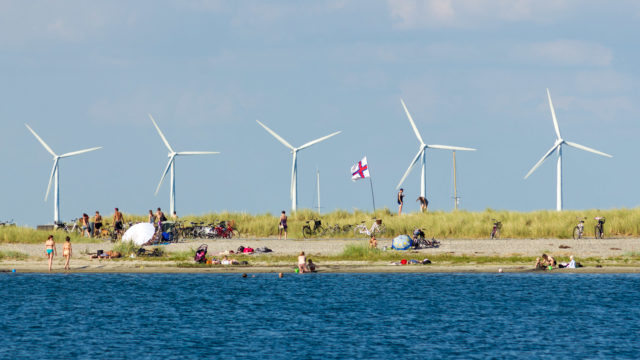Social media as soil: better, faster, stronger messaging
Getting better at riding the social media wave - and some thoughts on how to make the weather

The Breitbart Doctrine is the idea that "politics is downstream from culture" and that to change politics one must first change culture. This in part explains the role of social media in nurturing and growing political ideas.
The ideas that have had the most success in growing (especially when you considered how untethered they are from the truth) are those of the far right. This information environment privileges sirens, attention grabbing content, outrage, and extremes - not nuance.
Far-right free-marketeers profiting from pain
Social media companies are commercially incentivised to favour content that gets clicks and takes people down rabbit holes. Negatively activating hooks and content arcs based on fear and anger, galvanise engagement and dwell time, increasing opportunities for adverts, sales and increased profits.
Social media companies argue that they are platforms not publishers and as such are content ambivalent but when the content in question generates income platforms are slow to take action to address lies. Climate groups and academics have been calling on Google and social media platforms to extend their climate disinformation policy, demonetise and stop amplifying climate denial content – all to to limited avail.
As well as the platforms being designed to encourage irresponsibility, they can be further gamed with tweaks to the algorithm that organises who sees what. These hidden formulas are subject to political engineering and whims of the owners, in the German elections TikTok and X recommend pro-AfD content to politically non-aligned users ahead of the German elections. This is a political contribution that should be covered and monitored by election regulations and regulators.
“ There is a real premium on appearing authentic, and while answering questions from the heart and not sounding media trained is not alone a reliable indicator for authenticity, it is a good start.”
The allure of money and power, and the lack of effective regulations have created a perfect storm of collusion between big tech and the far right, where the mutual interests of both are served by supporting each other. The imperatives of AI development, the maintenance of the fossil fuel and extractive economy and the need to attain power (in some cases to avoid jail) has created an axis of self-enrichment.
So how can progressives combat this social media maelstrom and push back with cultural hooks of our own?
Five S’s for more social media success
Speed: in terms of content, it’s not about who can be right – it’s about who can be fastest. Social amplification occurs when an information need is met – so if you can rush out an explanation, a hot take, or a spin on an emerging story before the other side, then you’re already setting the terms of the debate. Bad faith actors, unencumbered by facts, can opportunistically seize on tragedies to advance their case.
Sign off: traditional ways of strategy development and organising content need reviewing to enable speed and relevancy. Digital is not just a tactic, it is its own reality, with its own rules and rhythms that we need to be responding to - instead of waiting around for approvals. Clarity about how to adapt to this space is key.
Success: looks different in this context, we need new metrics and ROIs that are about influence, countering narratives and relationship building. Longer term community building as a goal reframes what kind of content and connections we should be building, that requires creativity, experiment, learning from failure and innovation.
Speak human: I’m sorry if this is patronising but I
see this so many times it is worth saying again – we need to
communicate like real people, not policy professionals. There is a real
premium on appearing authentic, and while answering questions and not
sounding media trained is not alone a reliable indicator for
authenticity it is a good start. The success of demagogues like Trump,
Farage et al is in part built on their perceived “authenticity” – they
don’t talk like politicians, they talk like real people. While good
factual explanations and detailed policy programmes are all well and
good, they do very little to convince or persuade people who don’t
already agree. Sometimes a good anecdote, human interest story, zingy
one-liner or dank meme can do the work for us.
Strategic capacity: to be pre-emptive and respond
rapidly we need space to think and explore different outcomes. We live
in “interesting times” and while scenario planning is familiar to many,
not enough time is being spent stress testing plans, exploring worst
case scenarios and rehearsing decisions before we are overtaken by
events. In short our resilience is being compromised.
Conclusion
By itself this feels a starter for ten, a tactical list for improvement when I think it needs to be an invitation to rethink digital and see it not as a tactic to support policy wins but as a tool to try and shape culture. We absolutely need to be more effective digitally but we also need to build communities and leverage digital to shape meaning and connection.
And that means thinking beyond individual campaigns to thinking about the ecosystem that we are developing. We need to be intentional about articulating our values, developing and amplifying new voices, creating channels and connections, new policy, new media and new media companies, we need to create an ecosystem that has the power to build and connect constituencies of support and wrestle that Overton window open to more progressive ideas.
We need to create a compelling human vision of the future that is rooted in peoples needs and a universalist human rights approach. Not just defend a status quo that is inadequate, we need to be disruptive and own the mantle of change. It’s not just the ideas though - it is the infrastructure and structural power that we need to invest in and build.
- Jean McLean


